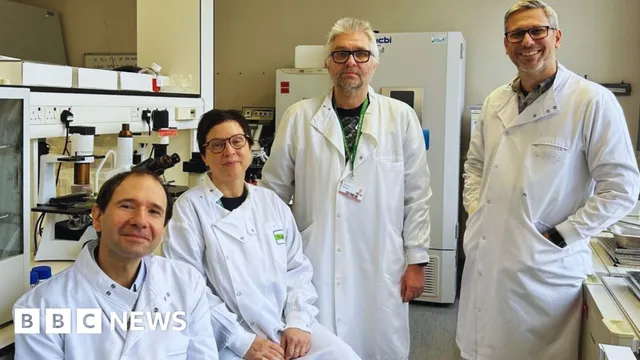
University of Essex develops new blood test for early detection of bowel cancer
2025-03-20 11:40- Researchers at the University of Essex are developing a new blood test for bowel cancer.
- The test aims to detect the disease in its early stages, which is crucial for treatment.
- This innovative approach could save lives by encouraging more people to participate in screening.
Express your sentiment!
Insights
In the United Kingdom, researchers at the University of Essex are spearheading the development of a groundbreaking blood test aimed at the early detection of bowel cancer. Announced recently, this innovative technique is seen as a potential game changer in the realm of cancer diagnostics. The researchers believe that the minimally invasive test could significantly improve early detection rates, which is crucial for effective treatment options. Traditionally, bowel cancer screening has relied on faecal immunochemical tests, commonly referred to as poo tests, which have been met with reluctance from many potential patients. This new test, however, utilizes a DNA analysis technique based on blood samples, which may encourage greater participation in screening efforts. By focusing on the cell-free DNA released from tumors, the researchers are optimistic about the test's ability to identify the disease in its initial stages. The project has garnered financial support from Bowel Cancer UK, which has contributed £165,000 towards the research. This funding is part of Bowel Cancer UK's broader mission to improve research strategies and ultimately reduce mortality from bowel cancer. Dr. Lisa Wilde from the charity emphasized the importance of advancing research that targets earlier diagnosis and prevention, stating it is essential for realizing a future where no one loses their life to this preventable disease. Led by Dr. Vladimir Teif and Dr. Ralf Zwacka from the university's school of life sciences, the initiative aims to bolster the medical community's approach to cancer diagnostics. Early detection of bowel cancer is critical, as it leads to higher survival rates and more effective treatment interventions. The researchers anticipate that increased screening uptake resulting from this blood test could save countless lives by allowing for timely medical intervention before the cancer progresses to more advanced, less treatable stages.
Contexts
Bowel cancer, or colorectal cancer, is one of the leading causes of cancer-related deaths worldwide. Its early diagnosis plays a crucial role in determining a patient's treatment pathway and overall prognosis. When bowel cancer is detected at an early stage, the chances of successful treatment and survival are significantly increased. This is primarily because earlier stages of the disease often present fewer complications and limitations to treatment options, allowing for a more effective intervention. Techniques such as colonoscopy, flexible sigmoidoscopy, and fecal occult blood testing are essential in identifying the disease in its early stages, enabling healthcare providers to initiate timely treatment protocols. The implications of delayed diagnosis can be severe. As bowel cancer progresses, it often metastasizes—spreading to other parts of the body, which complicates treatment and severely impacts survival rates. Late-stage diagnosis typically leads to a limited range of treatment options, often necessitating more aggressive treatments such as chemotherapy or palliative care rather than curative approaches. This not only affects the quality of life for patients but also places a substantial burden on healthcare systems due to increased treatment complexity and resource demands. It is critical, therefore, to promote awareness of the symptoms of bowel cancer and encourage regular screening, especially among high-risk populations. Education and outreach efforts are vital in improving early detection rates. Campaigns that raise awareness about the risk factors associated with bowel cancer, such as age, family history, lifestyle choices, and specific symptoms, can lead to earlier consultations with healthcare practitioners. Additionally, implementing guidelines for routine screening starting from the age of 50, or earlier for those with elevated risk factors, can aid in identifying the disease before it advances. Such proactive measures can significantly enhance the chances for effective treatment and recovery, emphasizing the importance of establishing robust screening programs and making them accessible to diverse populations. In conclusion, the importance of early diagnosis in bowel cancer treatment cannot be overstated. Effective screening and timely identification of the disease are pivotal in ensuring that patients receive the best possible care. The healthcare community must prioritize initiatives that promote early detection, as they can directly influence survival rates and improve patient outcomes. Through societal awareness and comprehensive screening guidelines, we can make strides toward combating bowel cancer and reducing its prevalence and impact.